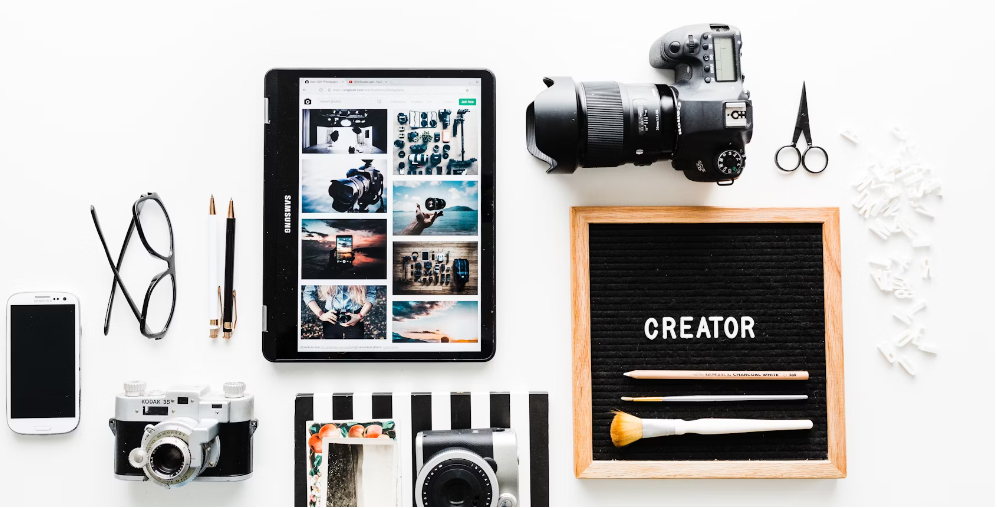They say working with influencers is easy. Just send the brief, agree on payment, and watch the magic happen.
Except… creators are ghosting. Campaigns stall. What about some of the best influencers? They’re quietly choosing not to work with certain brands again.
Why?
Behind every branded hashtag and curated campaign lies a list of red flags.
We spoke to real creators (anonymously, of course) about what brands do that makes them run. If you’re a brand that wants to win on social media, you’ll want to read and learn.
Real and raw creator confessions reveal what brands do wrong and what they must fix to build lasting influencer partnerships.
“They Treated Me Like an Employee, Not a Partner”
One lifestyle creator shared:
“The brand gave me a script, a storyboard, and even tried to choose my filming location. I’m not their intern. I’m a creator.”

Micromanaging is the quickest way to ruin a partnership. Influencers aren’t just content factories. They’re storytellers with their voice, style, and audience.
What brands should learn:
Influencers know their audience better than you do. Trust them. Offer direction, yes—but not dictatorship. A good brief gives room for creativity.
Most importantly, the best content comes from creators who feel respected, not controlled.
“They Wanted Everything for Free”
A beauty influencer said:
“They asked for one TikTok, two Instagram reels, five story frames, and exclusive rights—for a lipstick and ₦20k. I blocked them.”
Oops. Exposure doesn’t pay rent. Plus, a gifted product is not adequate payment, especially when deliverables pile up like unpaid invoices.
What brands should learn:
Respect the work. Content creation takes time, skill, and tools. Therefore, pay fairly and transparently. If your budget is tight, negotiate clearly but don’t lowball.
Creators talk. If you’re stingy with rates or unclear with terms, your reputation won’t survive in the influencer group chats.
“The Brief Changed Three Times in Two Days”
A travel content creator revealed:
“I planned, filmed, and edited a reel. Then the brand changed the product name. Twice. No extra pay.”
Constant changes lead to burnout. Worse, they show a lack of planning.
What brands should learn:
Lock down your influencer brief before you onboard creators. If changes are necessary, compensate them fairly.
Besides that, work with reasonable timelines. Influencers juggle multiple partnerships. You’re not their only client.
“They Vanished After Posting”
A finance creator confided:
“Once I posted, the brand didn’t comment, share, or even say thanks. They just disappeared.”
Yikes. Not only is that poor etiquette, but it also kills future partnerships.
What brands should learn:
Engagement goes both ways. Share their posts. Comment meaningfully. Send a thank-you message.
Essentially, treat creators as collaborators, not contractors. That small post-campaign interaction helps in building stronger partnerships with creators and long-term loyalty.
“They Ignored My Analytics”
A tech reviewer shared:
“I sent my insights and click-through data. The brand didn’t even open the report. They just ghosted me.”
This one hurts. Many influencers take time to gather performance insights, especially for paid partnerships. When brands don’t care, it feels like the work meant nothing.
What brands should learn:
Read the data. Ask questions. Give feedback. When creators know you value results, they’ll work harder to deliver them.
Also, data helps you improve your next campaign. Why skip it?
“They Asked for Rights Without Clarifying Use”
Another creator said:
“They wanted full usage rights for all content, but didn’t explain where they’d use it. That’s a red flag.”
Usage rights can make or break a deal. If you’re planning to run ads using influencer content, clarify it upfront.
What brands should learn:
Don’t sneak in usage grabs. Be transparent. If you want to run paid media or use content on your website, say so early.
Most importantly, pay for extended usage. Respect intellectual property—creators are not stock photo sites.
“They Gave Zero Creative Freedom”
One TikToker said:
“The brand wanted me to post a static graphic. My audience hates that. I said no.”
Forcing formats that don’t work on the creator’s platform shows a lack of insight and effort.
What brands should learn:
Study the creator’s style before reaching out. If they thrive on skits, don’t ask for a bland graphic. If they do explainer videos, don’t push for a fashion reel.
Besides that, trust their process. Creators know what converts on their feed.
“They Expected Overnight Results”
A health influencer said:
“After 24 hours, the brand emailed asking why sales hadn’t spiked. I almost cried.”
Here’s the truth: influencer marketing isn’t magic. It’s strategy, trust-building, and consistency.

What brands should learn:
Campaigns take time. Don’t expect ROI overnight. Monitor metrics but do it over weeks, not hours!
Therefore, define realistic KPIs from the start. Influencer marketing is a marathon, not a sprint.
“They Didn’t Understand My Audience”
One B2B creator said:
“They sent me a skincare collab. I make content for SaaS founders. My followers were confused.”
This is a mismatch. A creator’s audience matters more than their follower count.
What brands should learn:
Don’t chase clout. Match creators to your niche. Use tools like Aktivate to filter by category, audience, and engagement, not just numbers.
The best collaborations are relevant. Relevance builds trust, and trust builds conversion.
Final Thoughts: Build, Don’t Burn
Influencers aren’t hard to work with. They’re just tired of being misunderstood, underpaid, and disrespected.
Behind every viral post is someone who planned, created, edited, and put their face and name on the line.
Treat them with respect, pay them fairly, and finally, give them creative space. This is because when you treat creators well, they deliver magic. Every single time.
Want to work with creators the right way? Join Aktivate—the all-in-one platform where brands connect with Africa’s best influencers.
We make influencer marketing seamless with tools for discovery, campaign management, and reporting.
Book a demo session with Aktivate and start building authentic partnerships that work.




